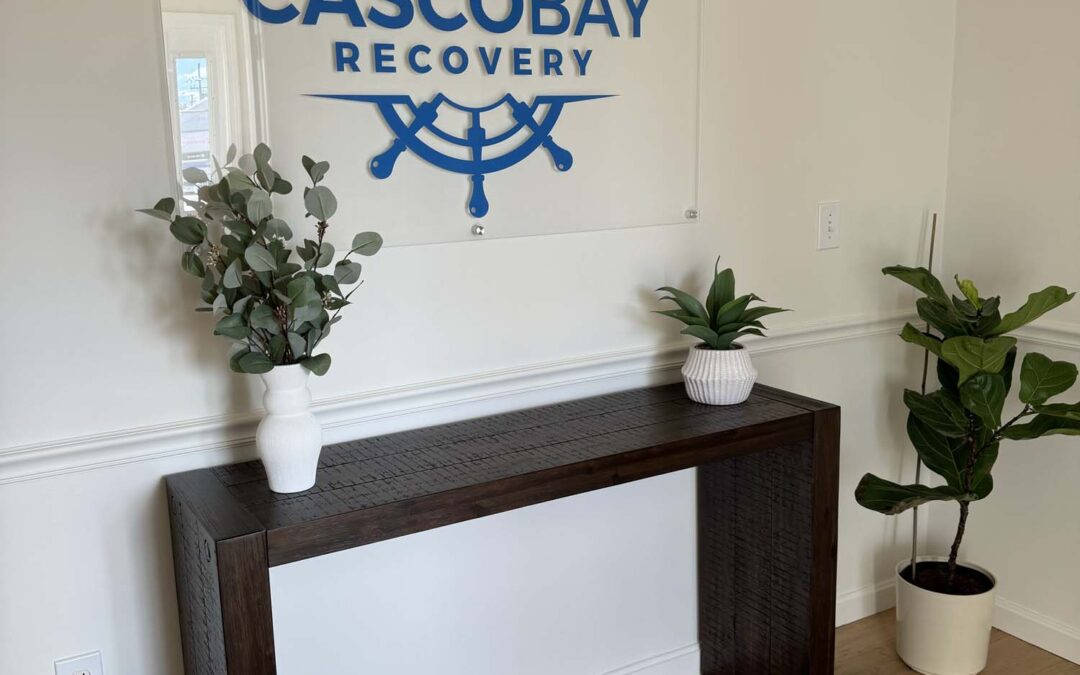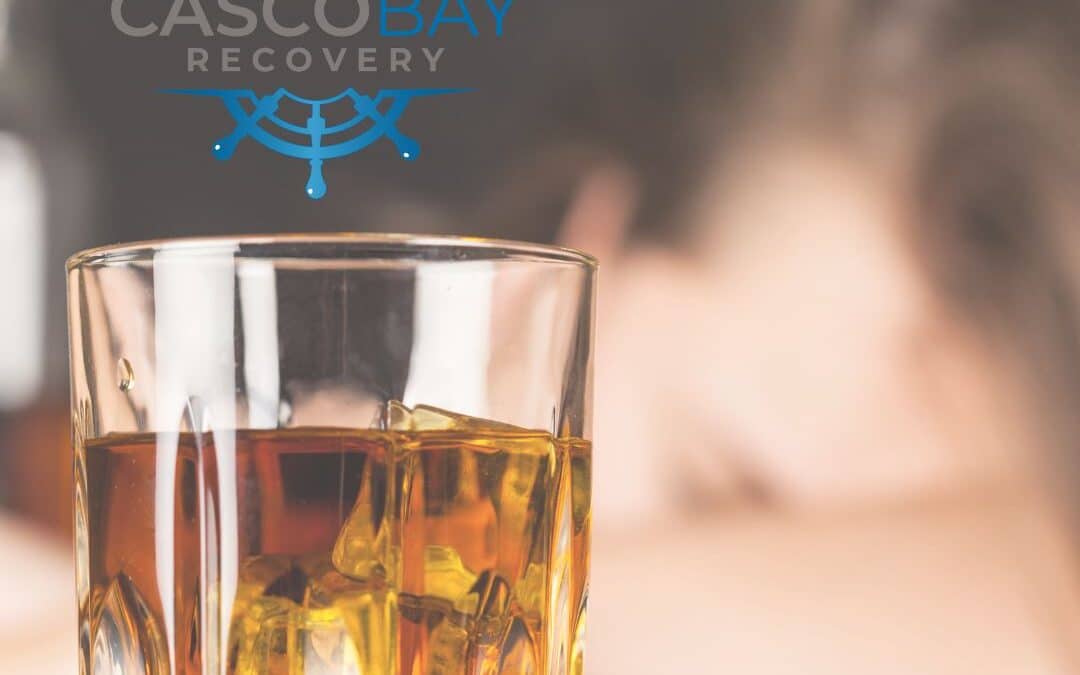Introduction
Adventure Therapy—also known as Experiential Therapy—is an innovative treatment approach that combines outdoor adventures with therapeutic processes. This dynamic form of therapy leverages activities like hiking, rock climbing, and kayaking to support individuals in their journey toward addiction recovery.
Why is Adventure Therapy Significant in Addiction Treatment?
- Holistic Healing: By integrating physical activities with mental health strategies, it addresses the mind-body connection crucial for sustainable recovery.
- Engagement: Traditional talk therapies may not resonate with everyone. Adventure therapy offers a hands-on, engaging alternative that can be particularly effective for those resistant to conventional methods.
- Natural Settings: The use of natural environments enhances therapeutic outcomes by reducing stress and fostering a sense of peace and well-being.
Casco Bay Recovery: Leading the Way
Located in Portland, Maine, Casco Bay Recovery stands out as a premier center specializing in this innovative approach. With a focus on blending traditional treatments with experiential therapies, Casco Bay Recovery provides a comprehensive program designed to meet diverse needs.
Understanding Adventure Therapy
Adventure Therapy Definition: An innovative method used in mental health and addiction treatment. It involves outdoor activities and hands-on learning experiences to facilitate healing. The main concept behind this approach is that participating in physically demanding activities can result in personal growth, both psychologically and emotionally.
Components of Adventure Therapy
- Physical Activities: Activities such as hiking, rock climbing, and kayaking are at the heart of adventure therapy. These activities not only offer physical benefits but also create opportunities for individuals to confront their fears, boost their self-esteem, and enhance their problem-solving abilities.
- Therapeutic Goals: Every activity is carefully crafted with specific therapeutic objectives in mind. For instance:
- Hiking: Promotes mindfulness and self-reflection.
- Rock Climbing: Fosters trust and improves problem-solving skills.
- Kayaking: Encourages teamwork and effective communication.
Natural Settings and Therapeutic Outcomes
The natural environment plays a vital role in adventure therapy. Spending time outdoors:
- Reduces stress levels by exposing individuals to fresh air and the beauty of nature.
- Boosts mood and mental clarity by providing a break from bustling city life.
- Creates a peaceful setting that facilitates introspection and emotional healing.
By integrating these components, adventure therapy offers a comprehensive approach to overcoming addiction that nurtures both physical well-being and mental health.
Why does Adventure Therapy work for Addiction Recovery?
1. Physical Benefits
When it comes to addiction recovery, the benefits of adventure therapy are vast and impactful. One significant aspect is the physical benefits derived from engaging in outdoor activities. These activities not only promote overall wellness but also play a crucial role in the healing process.
Impact on Physical Health Through Outdoor Activities
Moreover, adventure therapy isn’t just about having fun; it’s about utilizing physical challenges to foster both health and resilience. By engaging in activities like hiking, rock climbing, and kayaking, participants experience several benefits:
- Improved Cardiovascular Health: Firstly, regular participation in these physically demanding activities can significantly enhance heart health, thus reducing the risk of cardiovascular diseases.
- Increased Strength and Stamina: Additionally, climbing, paddling, and trekking help build muscle strength and endurance over time, leading to better overall fitness.
- Enhanced Flexibility and Balance: Furthermore, navigating through diverse terrains improves body coordination and flexibility, promoting better physical stability.
Altogether, these physical health improvements contribute to a healthier lifestyle, which is crucial for individuals recovering from addiction.
Stress Reduction and Improved Mood From Exercise
Exercise is well-known for its ability to reduce stress and elevate mood. The healing properties of nature amplify these benefits when combined with adventure therapy:
- Endorphin Release: Physical activity stimulates the release of endorphins, often referred to as “feel-good” hormones. This natural chemical boost can significantly elevate mood.
- Reduction in Cortisol Levels: Stressful situations increase cortisol levels in the body. Engaging in physical activities such as those found in adventure therapy can lower these levels, leading to reduced stress.
- Natural Antidepressant Effect: Regular exercise has been shown to have similar effects to antidepressants for some individuals. The combination of physical exertion and natural surroundings can be particularly beneficial for those struggling with depression or anxiety.
Adventure therapy for addiction taps into these benefits by creating a holistic approach that nurtures both mind and body.
2. Psychological Benefits
Adventure therapy isn’t just about the excitement; rather, it offers significant psychological benefits that contribute to overcoming addiction.
1. Addressing Mental Health Issues
To begin with, activities like hiking or rock climbing can help reduce symptoms of anxiety and depression. By being in nature and facing physical challenges, participants are able to practice mindful meditation. As a result, they can temporarily escape their daily worries and instead focus on the present, promoting mental clarity and relaxation.
2. Development of Coping Strategies
Moreover, adventure therapy teaches individuals effective ways to cope with difficulties. The unpredictable nature of outdoor activities, for instance, shows participants how to handle stress and adjust to new circumstances. This ability to adapt is essential for lasting recovery, as it equips individuals with the resilience needed to face life’s challenges without reverting to harmful behaviors.
3. Building Self-Esteem and Resilience
Overcoming physical obstacles boosts self-confidence and resilience, both crucial in defeating addiction. Finishing a tough hike or mastering a challenging climb gives a feeling of success that carries over into other aspects of life.
4. Promoting Emotional Expression
Outdoor settings often encourage open expression of emotions. Participants feel comfortable sharing their thoughts and feelings, leading to improved communication skills and emotional well-being.
Adventure therapy takes a comprehensive approach to healing by addressing both mental health issues and addiction through the therapeutic effects of nature and physical movement.
3. Social Benefits
Furthermore, the social aspects of adventure therapy cannot be overlooked, as they play an integral role in the recovery process.
Fostering Trust Among Participants
To begin with, building trust within a group setting is vital for personal growth:
- Team Dynamics: First and foremost, activities often require teamwork, which encourages participants to rely on each other. This reliance helps strengthen interpersonal connections and builds trust within the group.
- Support Systems: Additionally, developing supportive relationships within the group creates a network that extends beyond therapy sessions. This network provides ongoing encouragement, contributing to sustained recovery and emotional well-being.
Importance of Teamwork in Therapeutic Settings
Learning to work as part of a team has significant therapeutic value:
- Shared Goals: First, working towards common goals fosters unity among participants. This sense of collaboration helps individuals realize the strength that comes from working together.
- Empathy Development: Additionally, understanding each other’s struggles promotes empathy and mutual support. This emotional connection enhances the overall healing process.
By thoughtfully integrating these aspects into their treatment programs, centers like Casco Bay Recovery offer comprehensive care that addresses all dimensions of addiction recovery.
Is Adventure Therapy Right for You?
Adventure therapy offers a unique approach to addiction recovery, but it may not be suitable for everyone. Understanding if this method aligns with your needs can help you make an informed decision.
Ideal Candidates
Certain individuals may greatly benefit from adventure therapy, especially:
- Those resistant to traditional therapies: If conventional methods like talk therapy or medication haven’t been effective, this might offer a refreshing alternative.
- Individuals struggling with low self-esteem or trauma: Engaging in physically challenging activities can boost confidence and provide a sense of accomplishment, which is invaluable for those grappling with self-worth issues or past trauma.
Limitations to Consider Before Choosing Adventure Therapy
While it has many benefits, it’s not without its challenges. It’s essential to weigh these factors carefully:
- Outdoor Anxiety: Some people have a natural aversion to being outdoors, often due to past negative experiences or phobias. For these individuals, the idea of hiking up a mountain or kayaking through rapids might provoke more anxiety than relief.
- Specific Health Concerns: Physical activities inherent in adventure therapy require a certain level of fitness and health. For those with medical conditions such as severe asthma, heart problems, or physical disabilities, participating in strenuous outdoor activities could be risky.
Making an Informed Decision
To determine if adventure therapy is the right fit, consider discussing your options with healthcare providers who understand both your medical history and the demands of this therapeutic approach. Additionally, examining testimonials or case studies from reputable centers like Casco Bay Recovery can provide valuable insights into how others with similar backgrounds have fared in these programs.
By understanding both the advantages and limitations of adventure therapy, you can better decide if this innovative treatment aligns with your personal journey towards recovery.
Integrating Adventure Therapy with Traditional Treatments at Casco Bay Recovery
Adventure therapy for addiction offers a complementary treatment approach in the Casco Bay Recovery programs. This innovative method doesn’t replace traditional treatments but enhances them, providing a holistic recovery experience.
Adjunctive Treatment Approach
Adventure therapy effectively combines activities like hiking and kayaking with psychotherapy sessions, thereby creating a balanced therapeutic regimen. Patients not only engage in physical challenges that mirror their emotional struggles but also develop resilience and problem-solving skills throughout the process. This integrated approach enhances both emotional and physical healing.
Integration with Psychotherapy Sessions
At Casco Bay Recovery, adventure therapy is seamlessly integrated with standard psychotherapy. For instance:
- Cognitive Behavioral Therapy (CBT): Patients might discuss their experiences during an outdoor activity to identify thought patterns and behaviors.
- Group Therapy: Activities often require teamwork, helping patients build trust and improve communication skills within a group setting.
Start Your Healing Journey with Adventure Therapy at Casco Bay Recovery
Overview of Programs Offered at Casco Bay Recovery Center
Casco Bay Recovery Center provides a variety of programs tailored to meet the unique needs of individuals battling addiction. Among these, adventure therapy stands out for its innovative approach and proven effectiveness. The programs include:
- Adventure Therapy Sessions: Engage in activities like hiking, rock climbing, and kayaking to foster physical and mental health.
- Individual and Group Psychotherapy: Complementary therapy sessions that work in tandem with adventure therapy.
- Holistic Treatments: Incorporating mindfulness practices, yoga, and nutritional guidance.
How to Enroll or Inquire About Adventure Therapy Services
Taking the first step towards recovery can be daunting, but Casco Bay Recovery makes it straightforward:
- Initial Consultation: Reach out via phone or the website to schedule your first consultation.
- Personalized Treatment Plan: Based on your initial assessment, a customized treatment plan including adventure therapy will be devised.
- Enrollment Process: Complete the necessary paperwork and get started on your journey to recovery.
For more information or to begin your healing journey with adventure therapy at Casco Bay Recovery Center, visit Casco Bay Recovery or call us directly at (844) 953-1628. Embrace a new path to wellness today!
Conclusion
Effective Addiction Treatment Solutions Through Innovative Approaches
Exploring adventure therapy for addiction opens up a world of healing possibilities. This experiential approach combines physical activity with therapeutic techniques, making it an enriching and engaging alternative to traditional methods.
- Encourages Active Participation: Engaging in activities like hiking, rock climbing, and kayaking can make therapy sessions feel less clinical and more natural.
- Holistic Healing: Addresses the physical, psychological, and social aspects of recovery.
- Real-life Skills: Teaches coping strategies that are directly applicable to daily life challenges.
If you’re seeking innovative ways to tackle addiction, adventure therapy might just be the path worth exploring.








